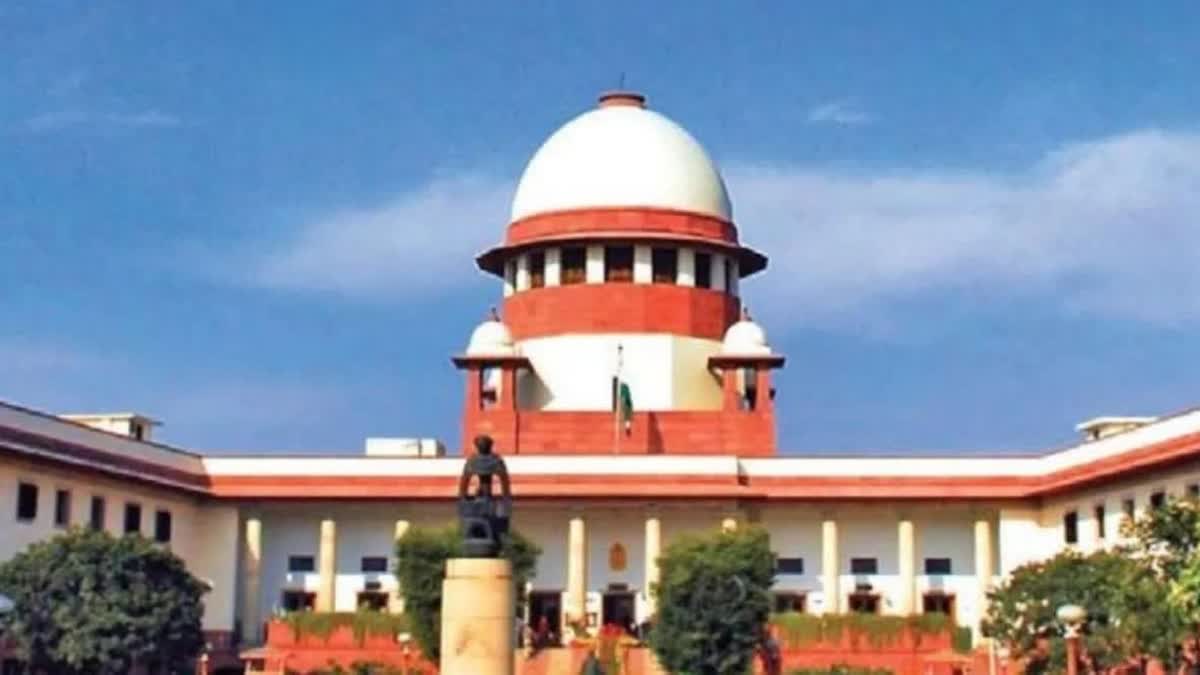New Delhi: The Supreme Court Tuesday observed that harm done to the environment cannot be reversed after Centre sought discharge from an oral statement made at the bar by its counsel before the apex court that it would not take any precipitative action on the decision for the environmental release of genetically modified (GM) mustard for seed production and testing.
Additional solicitor general Aishwarya Bhati, representing the Centre, made submissions before a bench comprising justices B V Nagarathna and Ujjal Bhuyan, regarding discharge from the oral statement and stressed on the upcoming sowing season. Bhati said when the court asked the Centre’s counsel last year to not take precipitative action in view of the matter being listed in the following week for final hearing, an assurance was given.
Bhati contended that the undertaking was made in a different context and it is an environmental release where research has gone on for 12 years. Bhati said the next sowing season will be next year and “we are at the last phase of research. This is not a commercial release, but an environmental release.” Bhati said if the bench would discharge the Centre from the oral undertaking, then they can proceed to sow the mustard seeds at the ten sites initially proposed and carry out the research.
Justice Nagarathna asked Bhati, “If we discharge you, what remains in this matter?” The top court also asked the Centre not to go ahead with the environmental release for now. Bhati said it will not be commercially released without this court first hearing the matter and clarified that “this is only environmental release….”.
Advocate Prashant Bhushan, representing a petitioner against environmental release of GM mustard, contended that environmental release means release into the environment and if they want to do any test, they can do it in greenhouse conditions otherwise it will lead to contamination. Bhushan argued that the technical expert committee had said no open test will be conducted until the regulatory mechanism, which is in shambles, is improved.
Also read: SC refuses to interfere with Punjab, Haryana HC order staying Wrestling Federation of India polls
Justice Nagarathna told Bhati that the bench is in a new combination, as Justice Dinesh Maheshwari has retired. Earlier, a bench comprising justices Maheshwari and Nagarathna had heard the matter. The bench told Bhati that the whole matter has to be argued and, referring to the application seeking discharge from oral statement, added, “why should we do this piecemeal kind of a thing?”
Justice Nagarathna observed that environment and ecology must also be maintained and the court needs to understand the whole problem. Justice Nagarathna said one year delay in sowing season does not matter and emphasized that harm caused to the environment cannot be reversed and next year there will be another season.
After hearing submissions, the top court scheduled the matter for further hearing on September 26. Last week, the Centre had filed an application in the Supreme Court seeking discharge from an oral statement made at the bar by its counsel that it would not take any precipitative action on the decision for the environmental release of genetically modified mustard for seed production and testing.
The application said “an oral statement was made at the bar by the Additional Solicitor General appearing on behalf of the Union of India that the Government of India will not take further precipitative steps for environmental release under the conditional approval granted on 25.10.2022 till the next date of hearing”.
The application stressed that mustard is the most important edible oil and seed meal crop of India and the process sanctioned under the conditional approval on October 25, 2022 must continue and arrive at its conclusions. Last week, a Centre’s counsel informed a bench of justices B V Nagarathna and Ujjal Bhuyan about the application.
The apex court sought a response from the petitioner NGO Gene Campaign upon it and scheduled the matter for hearing next week. The application added that while the same (the oral statement made at the bar) was not recorded in the order dated November 3, 2022, this statement has been honoured by the Union of India and no precipitative steps for a further environmental release of GM mustard hybrid DMH-11 subsequent to November 3, 2022, have been taken.
The Centre emphasized that the conditional approval of environmental release of GM mustard hybrid DMH-11 has been the result of well-considered scientific evaluation, expert deliberation and regulatory review over the course of nearly 12 years, under a comprehensive regulatory regime. The application said, “The oral statement on behalf of the Union of India on 03.11.2022 was made in the specific context of the present matter being listed for final hearing in the following week and was not intended to halt the entire process of research/testing under the conditional approval granted by the government of India for an extended period of time”.
The application said at present, India meets nearly 55-60 % of its edible oil demand through imports. “As such, indigenous development of transgenic varieties through the male sterility/restorer system is a critical element in ensuring India's future food security as this technology will be utilised to produce new hybrids with higher yields in future, thereby increasing agricultural output and farmer income," it said.
The Centre stressed that huge policy implications involved deserve early resolution. Petitioners have questioned the validity of the Genetic Engineering Appraisal Committee decision of October 18 2022, and subsequent decision of the Ministry of Environment and Forests and Climate Change of October 25, to allow environmental release of genetically modified mustard in five states.



